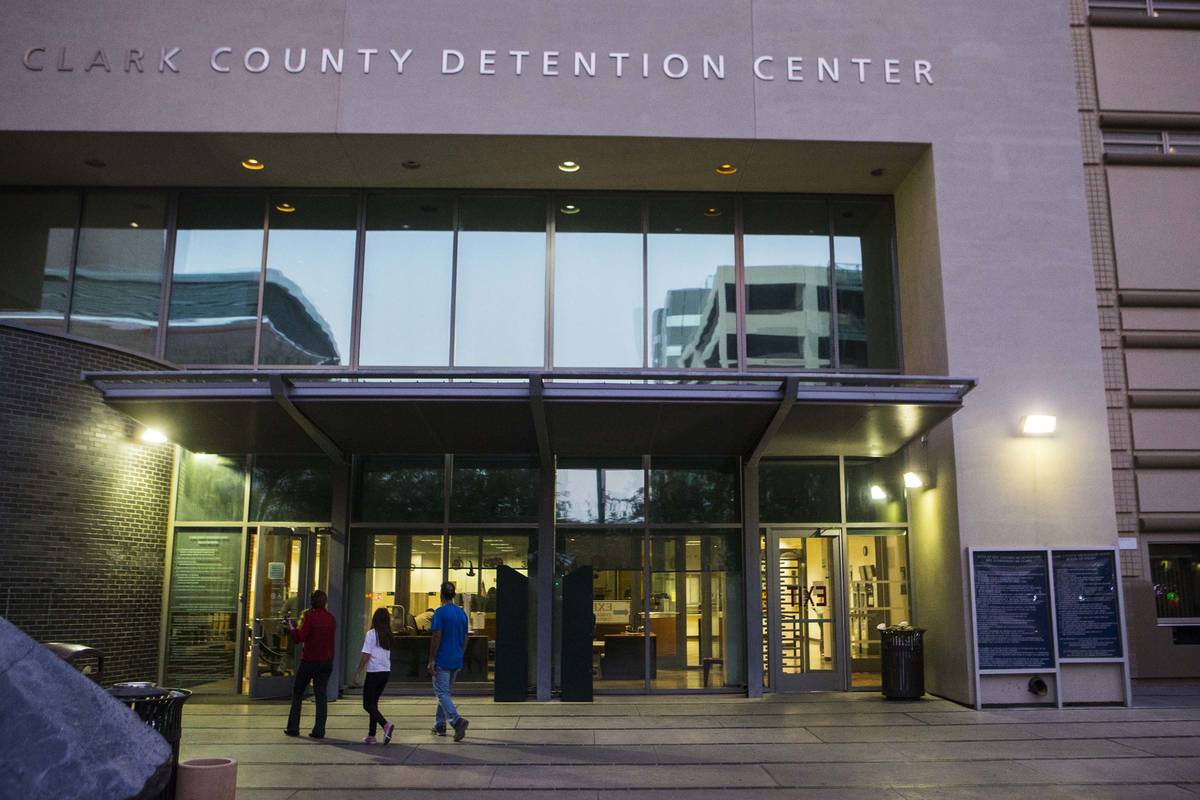Several Clark County jail inmates have been tested for COVID-19
Sheriff Joe Lombardo said at a news conference Wednesday that there had been no confirmed cases of COVID-19 among inmates in the Clark County Detention Center.
He then said that three inmates with symptoms of the virus had been released, and “one of them has tested positive.”
Assistant Sheriff Chris Jones later said that while the inmate has been tested, it was unclear if the inmate tested positive for COVID-19, which is one of multiple diseases caused by coronaviruses. He said that “out of an abundance of caution,” the Metropolitan Police Department was treating the case as a positive COVID-19 result.
“We will not know a confirmed status on that individual for another five to seven days,” Jones said.
Lombardo spoke about the inmate during a virtual news conference. He said the inmate was in the downtown Las Vegas jail for “approximately 11 days” before he exhibited symptoms and was taken to University Medical Center.
Jones said the inmate was booked into the jail on March 11, and he was released from Metro’s custody on March 23, after he had already been taken to the hospital.
Lombardo said that inmate “is currently rehabilitating at UMC.”
The other two inmates who were released this month after showing symptoms since have tested negative for COVID-19, Jones said.
One inmate was booked into the jail on March 13 and released the following day. The other inmate was booked into the jail on March 3 and released on March 15.
Metro runs the Clark County Detention Center, with a main location in downtown Las Vegas and another location, the North Valley Complex, in the far northeast valley. The detention center is the largest jail in the county.
Jones said one of the inmates who showed symptoms had been housed at the North Valley Complex. That inmate had been transferred to the downtown location because Metro does not release inmates from the other jail location, Jones said.
Lombardo also said Wednesday that two inmates had been placed in “negative-pressure” cells for isolation. There are 11 such cells at the jail, he said.
“Negative-pressure” rooms in hospitals are used to isolate patients with infectious diseases.
Both of those inmates were booked into the jail on March 19 and were moved to the isolated cells the same day, Jones said. They remained in the cells on Wednesday.
“As of today, neither of these inmates are complaining or showing symptoms of COVID-19, including fevers,” he said.
Both inmates have been tested for COVID-19, but the tests are pending, Jones said Wednesday. They will remain in the isolated cells until the test results are returned.
On Friday, Metro announced that social visits, inmate programs and inmate property releases were canceled due to the virus.
Some official visitors, including attorneys, social workers, law enforcement, psychiatrists, bail or bonding workers, subpoena services and house arrestees, are still allowed to visit the jail from 6 a.m. to 6 p.m. to speak with inmates via video.
Metro has said that jail and medical staff are taking steps to prevent the spread of the disease even before an inmate is processed into the detention center, such as individually screening each inmate for symptoms and potential exposure.
Those showing signs of illness, as well as inmates who are asymptomatic but may have been exposed to the virus, will be quarantined at the jail and screened over a two-week period by medical staff, according to Metro.
Hand sanitizer is not available to the inmates, but Metro has said that inmates “have constant access to anti-bacterial soap and water throughout the jail.” In addition, proper hand-washing instructions have been posted near each sink.
Contact Katelyn Newberg at knewberg@reviewjournal.com or 702-383-0240. Follow @k_newberg on Twitter. Review-Journal staff writer Rio Lacanlale contributed to this report.
Related
Clark County sheriff: No need for panic, 'Southern Nevada is safe'


















